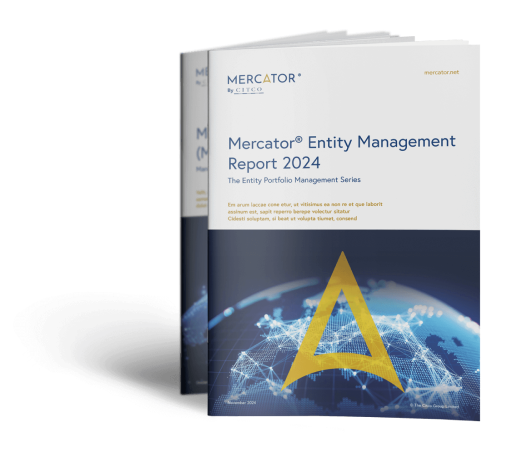The information contained in this document is marketing material and for informational purposes only. The information contained in this document is presented without any warranty or representation as to its accuracy or completeness and all implied representations or warranties of any kind are hereby disclaimed. Recipients of this document, whether clients or otherwise, should not act or refrain from acting on the basis of any information included in this document without seeking appropriate professional advice. The provision of the information contained in this document does not establish any express or implied duty or obligation between Citco and any recipient and neither Citco nor any of its shareholders, members, directors, principals or personnel shall be responsible or liable for results arising from the use or reliance of the information contained in this document including, without limitation, any loss (whether direct, indirect, in contract, tort or otherwise) arising from any decision made or action taken by any party in reliance upon the information contained in this document. © The Citco Group Limited, December 2024.
Mexico – UBO Identification and maintenance enforcement
The Mexican Tax Authority (SAT) has announced plans to significantly increase inspections, focusing on ensuring compliance with Ultimate Beneficial Ownership (UBO) obligations. Understanding and adhering to these regulations is crucial for all businesses operating in Mexico to avoid penalties and maintain good legal standing.
Background
The 2022 Mexican Tax Reform introduced a new obligation into the Mexican Federal Tax Code for companies to identify and maintain personal information on their UBOs known as ‘controlling beneficiaries’. This obligation came into effect on the 1st of January 2022.
Key Points for Businesses:
Compliance Requirements: All legal entities, including branches and representative offices considered taxpayers in Mexico, must identify and maintain UBO information.
UBO definition: A UBO is a natural person or group who:
1. Benefits directly or indirectly from participation in a legal entity, trust, or similar structure
2. Exercises rights over assets, services, or transactions
3. Controls a legal entity directly, indirectly, or contingently
Control is established when an individual or group can:
a) Influence key decisions in shareholder meetings or appoint/remove directors
b) Hold over 15% of voting rights in capital stock or assets
c) Manage the entity’s administration, strategy, or main policies
Note: If no UBO is identifiable through ownership or control chains, the Sole Administrator or Board members are designated as UBOs.
Internal Procedures: Companies should establish robust internal legal procedures and maintain reliable documentation to support UBO identification.
Compliance File: All UBO information must be compiled into a Compliance File or internal UBO register, which is part of mandatory accounting records.
UBO Information Requests:
- During Company Incorporation: Public notaries may require UBO-related documents (e.g., corporate charts, personal information) as deemed necessary.
- Shareholding Changes: Notaries may request updated UBO information when ownership changes occur in Mexican subsidiaries.
- Ongoing Obligation: Companies must maintain current UBO information, readily available for official requests at any time.
Disclosure Timeline: Companies must share UBO information with tax authorities within 15 days of request, with a possible 10-day extension.
Regular Updates: UBO information should be updated no later than 15 days after any relevant change occurs.
The Risks of Non-Compliance
Financial Penalties:
- Failure to obtain, retain, or submit UBO information: $80,000 – $110,000 USD
- Failure to update UBO information: $45,000 – $55,000 USD
- Submitting incomplete, inaccurate, or non-compliant information: $30,000 – $45,000 USD
Additional Sanctions:
- The Mexican Tax Authority (SAT) may impose further penalties, including:
a) Issuing an opinion of tax non-compliance
b) Banning the company from offering services or products in the public sector
Looking Ahead
As the SAT intensifies its focus on UBO compliance, businesses must ensure they are prepared for potential inspections. This includes:
- Regularly reviewing and updating UBO information
- Maintaining comprehensive documentation
- Establishing clear internal processes for UBO identification and reporting
For assistance with creating and maintaining your UBO register, don’t hesitate to contact our expert team at mercator@citco.com.
Read our Case Study: Ensuring UBO Compliance in Mexico.

